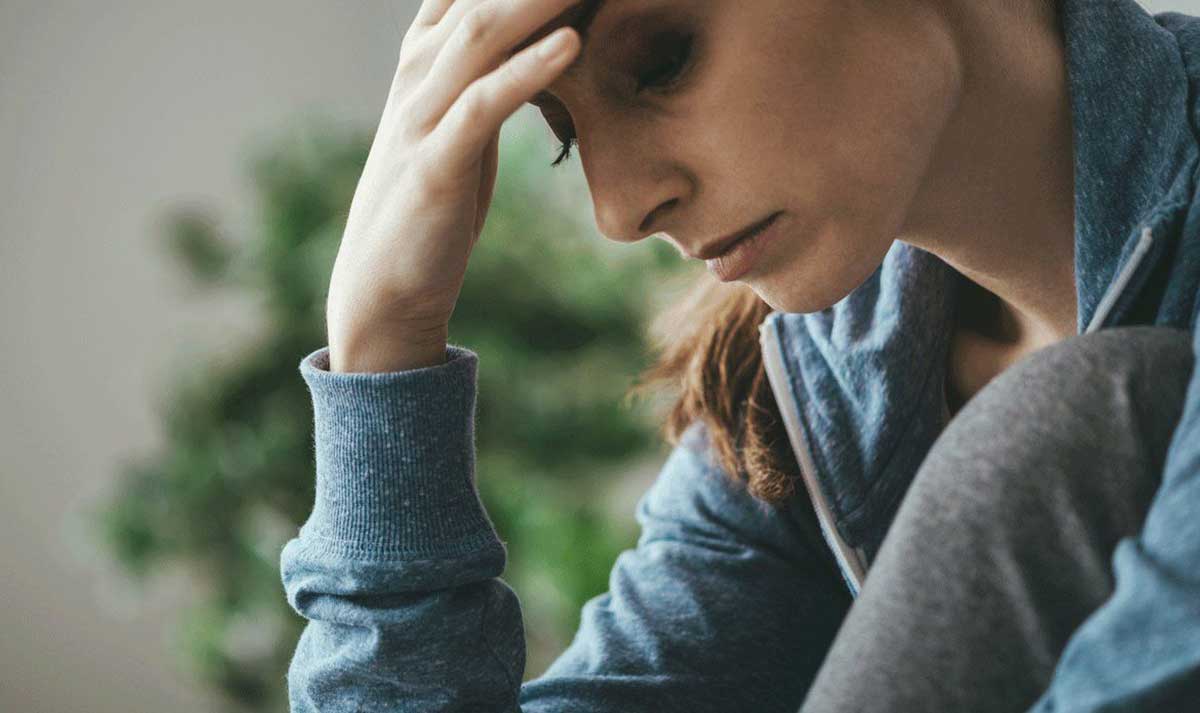If you are in immediate danger, please contact Triple Zero (000).
Being in a relationship with someone who is either physically or mentally abusive (or both) towards you is a serious concern.
Domestic abuse can have a significant negative impact on your health and wellbeing, including the wellbeing of any children who are present. Physical violence in the home is also a criminal offence punishable by law.
Unfortunately, if you are the victim of domestic violence, it may be difficult to come to terms with the fact that your partner – who you may still very well love – can and does have the capacity to act out in a violent, aggressive, intimidating, or threatening manner. This form of denial often leads to inaction and acceptance.
This and other external factors (i.e. children, financial dependence, threats of future harassment) can make the prospect of leaving the relationship seem like a fruitless endeavour.
Here are some things you can do to improve your situation.
Know the Signs of Abuse
Being able to identify the signs of domestic abuse early is a step in the right direction.
Regardless of how frequent or severe the level of abuse is, it is never acceptable for a person to cause you physical harm, or force you into a situation that makes you feel in danger, ashamed, embarrassed, belittled, humiliated, or unworthy.
Some forms of abuse are harder to identify than others. But, by familiarising yourself with certain patterns of toxic behaviour, this will help you come to terms with the situation and take steps to break free from an abusive partner.
You may be a victim of domestic abuse if
- Your partner humiliates you in front of your friends, family, and co-workers.
- Your partner threatens you with physical violence.
- Your partner says things to you that make you feel ashamed, unworthy, insignificant,
unloved, unwanted, ugly, or powerless. - Your partner goes out of their way to control almost every aspect of your life – i.e.
how you spend your money, who you spend time with, how long you are out for,
where you go, and what time you arrive home. - Your partner pressures or forces you to take part in unwanted sexual acts.
- Your partner makes unwanted sexual advances towards you.
- Your partner criticises and judges you for the way you look, act, and talk.
- Your partner threatens to commit suicide, harm the children or pets, or even you, if
you choose to leave the relationship. - You have physical injuries (i.e. scars, bruises, scratches, burn marks, sprains, or even
broken bones) as a result of your partner. - Your children are afraid to be around your partner, they appear to be anxious and
scared, and lack confidence. - You feel reluctant to leave your children alone with your partner.
- You feel anxious, scared, or reluctant at the thought of going home.
What to Do If You Are a Victim of Domestic Violence
Any one of these above scenarios is a sign you are a victim of domestic violence and abuse. Here are some steps you can take to protect both you and your children from family violence.
Reach out to Family and Friends
Talking about your relationship to other people may be the last thing you want to do. However, if your close friends or family start to notice that something is up, or you feel the need to reveal what is going on, don’t be afraid to speak up.
Even the simple act of talking to another person can help free up your emotions and release some of the burden off your shoulder. If the situation is especially serious, your friends and family may offer you a place to stay or financial support to help you stay on your feet.
Regardless, once the people close to you are aware of the situation, they will know to keep in regular touch with you and make sure that you are safe. This level of support can give you the confidence you need to take the next step.
Contact the Police
Call Triple Zero (000) if you are in immediate danger. If English is not your first language, state your native language, and the respondent will connect you to an interpreter.
During their visit, the police will assess the situation and take note of any past history of family violence. The police have the power to arrest the offender and also:
- Find and confiscate weapons in the household
- Remove the offender from the premise and take them to the police station
- Charge the offender with a criminal offence
- Apply for an Apprehended Violence Order (AVO) on your behalf (also known as an
Intervention Order, Protection Order, Domestic Violence Order, and Violence
Restraining Order depending on your state and territory).
Apply for an Apprehended Violence Order
An Apprehended Violence Order is an order made by a magistrate to protect victims of domestic violence from physical and mental harm.
The terms of the Order state that a violent person must stay away from you, your home, and/or your workplace. The purpose of the Order is to discourage the violent person from continuing to harass you. While it is not a guarantee the harassment will stop, a violent person can be charged with a criminal offence if they breach the Order.
In NSW, you can apply for an AVO through a local court, a Federal Magistrate Court, or a Family Court. Any children over 16 years can make their own application for an AVO, but the age criteria is different for each state and territory.
When to Get Legal Advice
If you choose to apply for an AVO on your own, it is highly recommended you speak to a professional and get a lawyer to represent you.
While applying for an AVO is fairly simple, the process of preparing for and going to a Magistrates Court hearing can be daunting – especially if your partner decides to object and defend the allegations.
Being fully aware of your legal rights and responsibilities will help you be prepared for what’s to come, and the representation of a professional lawyer can improve your chances of a successful outcome.
If you plan to separate or file for divorce, there are many legal considerations that need to be resolved. These range from parenting arrangements and financial arrangements through to property settlements and much more.
By having a family lawyer guide you through the settlement process, this can make – what is already a stressful time – a lot easier for you to manage and ensure you reach a mutually beneficial outcome. Thus, giving you the strength and confidence to move on to the next chapter in your life.
If you are a victim of domestic violence or abuse and you need legal advice, contact us today. Your first consultation is absolutely FREE, confidential, and comes with no obligation.




